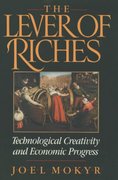Question
Question Five (worth four points) If you work at a job, you trade your time for a wage. If you buy a car from a
Question Five (worth four points)
If you work at a job, you trade your time for a wage. If you buy a car from a private seller you give up cash in exchange for a car. If you go on a trip you give up your time and money in exchange for the trip.
Using some (all) of the above examples (or different examples that you come up with), explain why the trade is mutually beneficial. What are the costs to you and the other person and what are the benefits to you and the other person. What is the basis for a mutually beneficial trade? (For example, for the second example, what must be true about the value the seller attaches to the car compared to the value you attach to the car?)
Question Six (worth nine points)
- Food at a food court in an airport is much more expensive than at at a food court in a mall. Why is there greater scarcity for the airport? Was this scarcity created by someone? Who has the power of scarcity?
- Here is a link to a restaurant in Maine that only accepts reservations by postcard: https://people.com/food/erin-frenchs-restaurant-the-lost-kitchen-is-accepting-postcards-for-reservations-all-the-details/
Why is there scarcity? What would be the problem with the restaurant owners opening up ten new locations throughout Maine? Why don't the owners simply charge $800 for their meals? What return are the owners capturing with their power of scarcity?
- Here is a link to a discussion of how to visit Katmai National Parkhttps://www.boundfornowhere.com/blog2/howtogetto-katmainp
What is the basis of the power of scarcity? Why doesn't the government, which owns the national park, exercise its power of scarcity to get an enormous return? Who is capturing returns from the power of scarcity? (And if you would rather talk about the Boundary Waters go for it.)
Bonus Question (worth four points) For the occupations you were looking at, can you attribute any of the relatively high wages to the power of scarcity?Explain your reasoning.
Question Seven (worth eight points)
Economists argue that we are in equilibrium when economic profits are equal to zero. Making up a numerical example and telling stories explain the reasoning by economists. In your answer do the following. Explain how zero economic profits doesn't mean that people aren't making any money; why economists believe that negative economic profits means that someone else is earning positive economic profits and therefore we will see people exit the occupation/market they are in; and why economists believe that positive economic profits means people want to enter that occupation.
Bonus Question (worth six points)
Assume government uses dollar fines or jail time as a punishment designed to deter certain types of behavior.Give examples (think of the concept of opportunity cost) where imposing the same fines for all people for some offense would end up treating people unequally and imposing the same fail time for all people convicted of some offense would end up treating people unequally.Be specific.
Step by Step Solution
There are 3 Steps involved in it
Step: 1

Get Instant Access to Expert-Tailored Solutions
See step-by-step solutions with expert insights and AI powered tools for academic success
Step: 2

Step: 3

Ace Your Homework with AI
Get the answers you need in no time with our AI-driven, step-by-step assistance
Get Started


